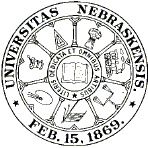
University Studies (University of Nebraska) (1888–1984)
Date of this Version
7-1919
Citation
UNIVERSITY STUDIES, VOL. XIX JULY-OCTOBER 1919, Nos. 3-4. (pp 1-70 / 103-172)
Abstract
Notes on Shakespeare's Workmanship. By Sir Arthur QuiIler-Couch, M. A. New York: Henry Holt and Company .
The title of Quiller-Couch's recent volume,l would seem to promise a fresh discussion of the dramaturgic method and excellencies of this author. No promise or prospect could have been more welcome. The technic of organizing a play is a matter of no slight concern. All the dramatic world is waiting for some satisfying if not final word.. There are critics and scholars who affirm that there is no such thing as dramatic construction. They would even add that there are no princiJ>les whatever which successful plays illustrate. Every playwright works out his own salvation, and is a respective and independent law unto himself. On the other hand, there are critics of perhaps superior insight and authority who insist that there are indeed laws of dramatic technic, and that no sort of play can be constructed without conforming, in ess\ntial features, to them.
Mr. Quiller-Couch furnishes no enlightenment, in the present volume, on this fundamental question. He leaves it in fact wholly unconsidered. Here and there he crosses the boundaries of dramatic technic, but for the most part deals only with the psychology of its effects. His work is thus in substance only another. contribution to aesthetic criticism. This is greatly to be regretted. We have long had too little help, in attempts at resolving the riddle of Shakespeare's craftsmanship, from minds expert in the creation and management of personality. It is fair to assume that every successful novelist, as well as playwright, might supply at least some ray towards illuminating the supreme mystery of literature. As a ~tudy in interpretation, on the other hand, the book surpasses expectation. Its criticisms are almost everywhere constructive. One finds throughout the several chapters, keen discrimination, fresh common-sense judgments, along with flashes of insight, and more than occasional intimations of this writer's creative powers. And the whole is languaged in an easy and suggestive rather than a literary or distinguished vein.
The work consists of lectures, slightly altered, which were originally" spoken before an audience in the University of Cambridge.", They evince the informal and catchy character incident to such a purpose, and are as slightly academic as could be looked for from a novelist, who is also a professor of English literature and fellow of a college. Quite evidently this author is no specialist in the lore of Shakespeare.' Many of his observations would have been impossible to an inquirer working with a shorter focus. On the other hand, some of his conclusions, as will probably appear, could hardly have been reached by one with less ex itinere motivation and approach.


Comments
PUBLISHED BY THE UNIVERSITY OF NEBRASKA